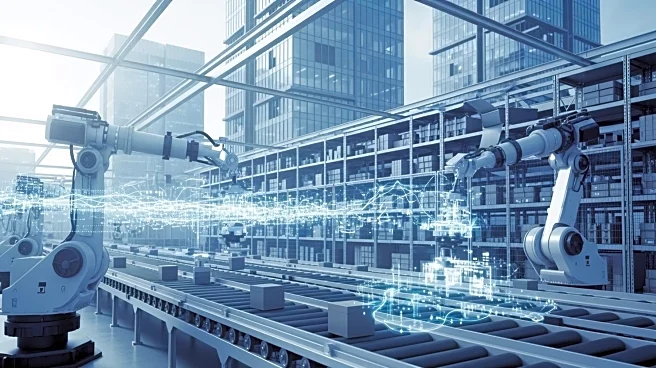What's Happening?
The third-party logistics (3PL) industry is undergoing a transformation as shippers and 3PL providers shift from transactional relationships to strategic partnerships. According to a study by NTT Data
and Penn State University, these partnerships are characterized by regular performance assessments and a focus on continuous improvement. The study highlights that 3PLs are increasingly using continuous improvement targets and financial penalties as assessment tools, more so than shippers. This shift is driven by the desire to eliminate waste and innovate, with 3PLs playing a crucial role in driving technological advancements within the supply chain.
Why It's Important?
The move towards strategic partnerships in the 3PL industry is crucial for enhancing supply chain efficiency and innovation. By focusing on continuous improvement and leveraging emerging technologies, 3PLs can offer more value to their clients, leading to better service delivery and cost savings. This transformation is likely to impact various sectors reliant on logistics, including retail, manufacturing, and e-commerce, by improving the reliability and responsiveness of supply chains. As 3PLs continue to innovate, they may also contribute to broader industry trends such as automation and sustainability.
What's Next?
As strategic partnerships become more prevalent, both shippers and 3PLs are expected to invest further in technology to support these collaborations. This may include adopting advanced analytics, automation tools, and digital platforms to enhance communication and operational efficiency. The industry could see increased competition among 3PL providers to offer innovative solutions, potentially leading to mergers and acquisitions as companies seek to expand their capabilities.
Beyond the Headlines
The emphasis on strategic partnerships and technology in the 3PL industry reflects a broader shift towards more integrated and collaborative supply chain models. This approach not only improves efficiency but also supports resilience against disruptions, such as those experienced during the COVID-19 pandemic. As the industry evolves, it may also contribute to the development of more sustainable logistics practices, aligning with global efforts to reduce environmental impact.








